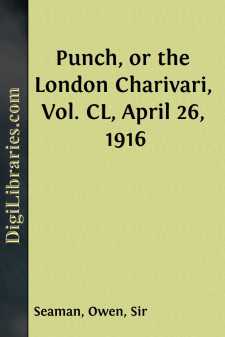Categories
- Antiques & Collectibles 13
- Architecture 36
- Art 48
- Bibles 22
- Biography & Autobiography 813
- Body, Mind & Spirit 142
- Business & Economics 28
- Children's Books 17
- Children's Fiction 14
- Computers 4
- Cooking 94
- Crafts & Hobbies 4
- Drama 346
- Education 46
- Family & Relationships 57
- Fiction 11829
- Games 19
- Gardening 17
- Health & Fitness 34
- History 1377
- House & Home 1
- Humor 147
- Juvenile Fiction 1873
- Juvenile Nonfiction 202
- Language Arts & Disciplines 88
- Law 16
- Literary Collections 686
- Literary Criticism 179
- Mathematics 13
- Medical 41
- Music 40
- Nature 179
- Non-Classifiable 1768
- Performing Arts 7
- Periodicals 1453
- Philosophy 64
- Photography 2
- Poetry 896
- Political Science 203
- Psychology 42
- Reference 154
- Religion 513
- Science 126
- Self-Help 84
- Social Science 81
- Sports & Recreation 34
- Study Aids 3
- Technology & Engineering 59
- Transportation 23
- Travel 463
- True Crime 29
Sort by:
by:
Helen Ashe Hays
CHAPTER I Of all the illustrious families who have shone like gems upon the earth's surface, none have been more distinguished in their way than the Lazybones family; and were I so disposed I might recount their virtues and trace their talents from a long-forgotten period. But interesting as the study might prove, it would be a difficult task, and the attention I crave for Prince Leo would be...
more...
A Voice in the Wilderness I"La parlate d'amor,O cari fior,Recate i miei sospiri,Narrate i miei matiri,Ditele o cari fior——" Miss Bouverie ceased on the high note, as abruptly as string that snaps beneath the bow, and revolved with the music-stool, to catch but her echoes in the empty room. None had entered behind her back; there was neither sound nor shadow in the deep veranda through...
more...
by:
Thomas Hardy
King’s-Hintock Court (said the narrator, turning over his memoranda for reference)—King’s-Hintock Court is, as we know, one of the most imposing of the mansions that overlook our beautiful Blackmoor or Blakemore Vale. On the particular occasion of which I have to speak this building stood, as it had often stood before, in the perfect silence of a calm clear night, lighted only by the cold shine...
more...
THE WRECK OF THE HESPERUS It was the schooner Hesperus, That sailed the wintry sea;And the skipper had taken his little daughter, To bear him company. Blue were her eyes as the fairy-flax, Her cheeks like the dawn of day,And her bosom white as the hawthorn buds, That ope in the month of May. The skipper he stood beside the helm, His pipe was in his mouth,And he watched how the veering...
more...
THE CLEVER KID TIME: this morning. PLACE: a pasture. GRAY WOLF.WHITE WOLF.KID. [The GRAY WOLF and the WHITE WOLF are standing at the foot of a hill; at the top of the hill is a KID.] GRAY WOLF. Look, brother, there is a kid! WHITE WOLF. Where? Where? GRAY WOLF. On that hill to the south. WHITE WOLF. I do not see her. GRAY WOLF. She is on the very top. WHITE WOLF. Ah, now I see her! GRAY WOLF. I wish we...
more...
ABOARD THE ZLOTUHB IN THE YEAR 2951 10th May There is land ahead! Grip-til-lah was first to see it, and when he shouted the tidings my heart beat fast with joy. The famished crew have forgotten their disconsolate stomachs and are dancing about the deck. 'Tis not I, forsooth, who shall restrain them! A month of emptiness upon a heavy sea is preparation for any folly. Nofuhl alone is without...
more...
by:
Charles Dickens
CHAPTER 1. I AM BORN Whether I shall turn out to be the hero of my own life, or whether that station will be held by anybody else, these pages must show. To begin my life with the beginning of my life, I record that I was born (as I have been informed and believe) on a Friday, at twelve o'clock at night. It was remarked that the clock began to strike, and I began to cry, simultaneously. In...
more...
by:
Laurence Housman
Possession Scene.—The Everlasting Habitations It is evening (or so it seems), and to the comfortably furnished Victorian drawing-room a middle-aged maid-servant in cap and apron brings a lamp, and proceeds to draw blinds and close curtains. To do this she passes the fire-place, where before a pleasantly bright hearth sits, comfortably sedate, an elderly lady whose countenance and attitude...
more...
by:
Owen Seaman
April 26, 1916. General Villa, in pursuit of whom a United States army has already penetrated four hundred miles into Mexico, is alleged to have died. It is not considered likely, however, that he will escape as easily as all that. "Germans net the Sound," says a recent issue of a contemporary. We don't know what profit they will get out of it, but we ourselves in these hard times are only...
more...
by:
Madeline Leslie
CHAPTER I.FRANKIE AND HIS WHEELBARROW.I have already told you that Frankie lived in a pretty cottage, separated from the road by a green lawn, which lay in front of it. On the other side of the street, the land was much lower, a little shining brook running through it, and sometimes, after a rain, there was quite a pond of water. In winter this was a pleasant place for Willie to skate. His mamma liked...
more...











